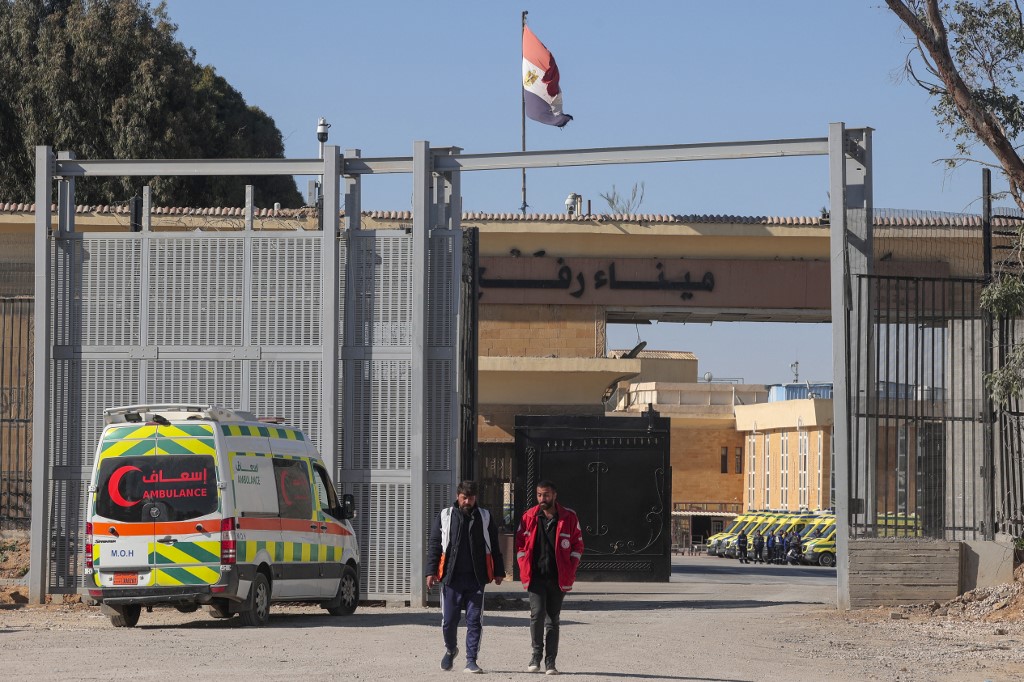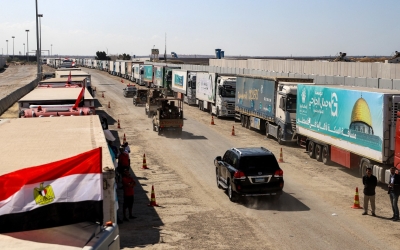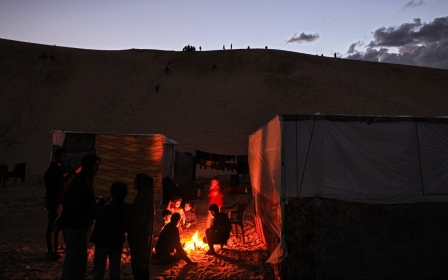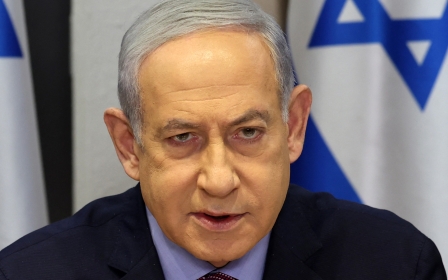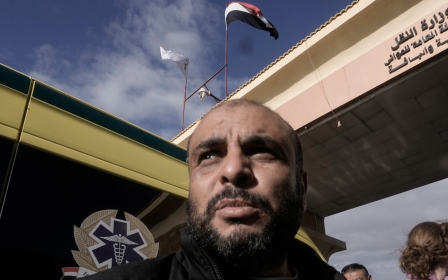War on Gaza: The contrast in how the UK treats Palestinian and Ukrainian refugees is brutal
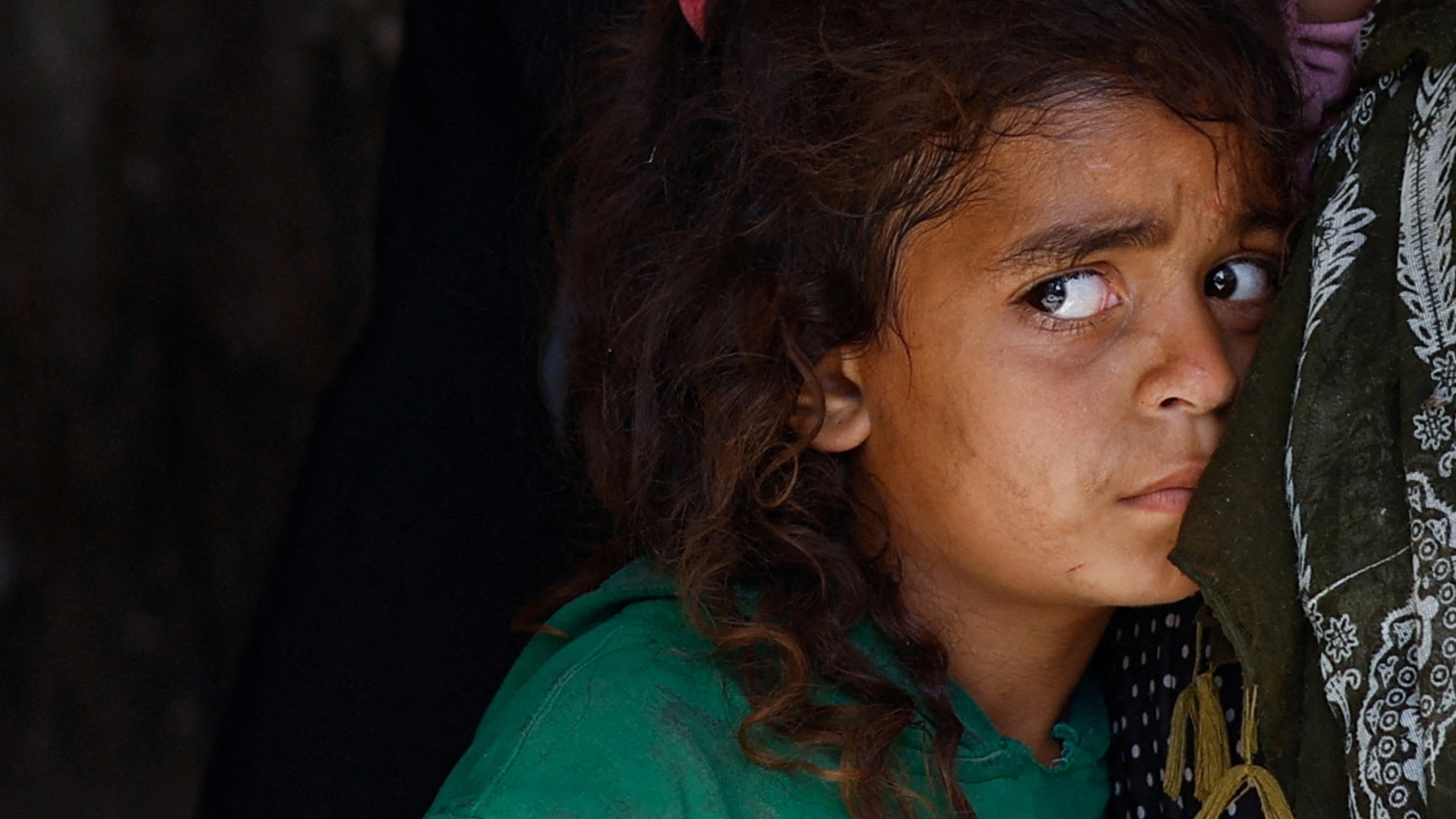
Refugees from Gaza with family in the UK face both Kafkaesque barriers from the UK government and extortion at the border between Rafah and Egypt. A family I know is experiencing both.
Before going into that, though, let’s get one thing clear. The way to end the suffering in Gaza is an immediate ceasefire and unimpeded humanitarian access into the Strip.
It is 100 per cent unacceptable to expect the Palestinians to leave their homeland, however much the extremists who dominate the current government of Israel would like to push as many of them as possible over the border into Egypt.
Most Palestinians living in Gaza already come from refugee families who fled there when they were forced from their homes further north when the state of Israel was created in 1948. Palestinians call it the Nakba or catastrophe.
The carnage in Gaza is already beyond horrific. The world must not allow that horror to turn into Nakba 2.0.
New MEE newsletter: Jerusalem Dispatch
Sign up to get the latest insights and analysis on Israel-Palestine, alongside Turkey Unpacked and other MEE newsletters
Nobody suggests that the answer for the people of Ukraine is to leave their homeland in the face of Russia’s aggression either. But that has not stopped many countries, including our own, from opening our doors to provide a place of sanctuary for families fleeing the bloodshed in Ukraine.
That is no more than the right thing to do at a human level and it reflects the spirit of the 1951 International Refugee Convention to which the UK is a signatory.
Stark and brutal
But the contrast between the way the UK treats Ukrainian refugees and those fleeing Gaza is stark and it is brutal. To be allowed entry to the UK, someone fleeing Gaza has to demonstrate both that he or she already has permission to enter the UK for longer than six months and that he or she has a spouse or a child aged 17 or under living here.
If you have a brother or sister living in the UK, or you are a vulnerable older person with an adult son or daughter here, the UK’s rules tell you to forget it.
Follow Middle East Eye's live coverage of the Israel-Palestine war
No such conditions are imposed on people fleeing Ukraine. Indeed, under the Homes for Ukraine scheme, UK citizens have been supported to welcome Ukrainian refugees into their own homes, whether or not they have a family connection. Rightly so.
Nothing forces the UK government to behave like this. It is a deliberate policy decision on its part
When questioned in parliament about all this, UK ministers often say they will look at individual cases of Palestinians fleeing Gaza which MPs bring to their attention. So far, however, there is scant evidence that their words mean very much in practice.
Nothing forces the UK government to behave like this. It is a deliberate policy decision on its part and it is time for ministers to change course.
Many MPs and Members of the House of Lords from different parties have signed an open letter to the Home Secretary from Baroness Bennett urging the introduction of Palestinian visa scheme modelled on Homes for Ukraine.
Two motions along similar lines have also been tabled in the House of Commons.
All these efforts deserve our support. They also deserve action, not just words, from UK ministers.
Extortion
But these things are only part of the story. To get out of Gaza in the first place, Palestinian refugees have to be allowed to pass through the crossing between Rafah and Egypt’s Sinai desert.
Although the border is directly administered by Egypt, Israel also has a big say over who is allowed through the Rafah crossing and who is not. There has been no other way out of Gaza since 7 October.
Palestinians trying to get to the UK must first get their names onto a list provided to the Egyptian and Israeli authorities by the UK consulate general in Jerusalem. If you are not a UK national or otherwise satisfy the UK government’s restrictive visa rules, you won’t get on that list.
Even if the UK does put you on the list, permission to cross at Rafah from the Egyptian and Israeli authorities is not guaranteed.
Having got onto the UK list, or if you are a Palestinian trying to get to any other country, you will also be charged a huge fee to be physically allowed through the Rafah crossing. Members of a Palestinian family I know were recently charged nearly £9,000 for a mother and her children to cross into Egypt.
I know of families who have faced demands for even larger amounts of cash. My friends were lucky enough to have had access to that kind of money. It would be simply beyond the reach of most Palestinians in Gaza - a strip of land that was ravaged by poverty long before Israel’s latest invasion and which has had no functioning economy at all for the past six months of war.
Nobody seems to know how much of the money demanded from Palestinians at the Rafah crossing is made up of official Egyptian government charges and how much is down to corruption at the border.
Either way, it is extortion directed against people who have already lived through unspeakable horrors in Gaza.
Not only must the UK government lift the brutal barriers it puts in the way of Palestinian refugees seeking sanctuary in the UK, particularly when they have family or other connections here. It must also, together with other countries, put demonstrable pressure on Egypt to stop the extortion at Rafah - whether it arises from official exit fees or the actions of corrupt officials.
Common decency requires nothing less.
The views expressed in this article belong to the author and do not necessarily reflect the editorial policy of Middle East Eye.
Middle East Eye delivers independent and unrivalled coverage and analysis of the Middle East, North Africa and beyond. To learn more about republishing this content and the associated fees, please fill out this form. More about MEE can be found here.



